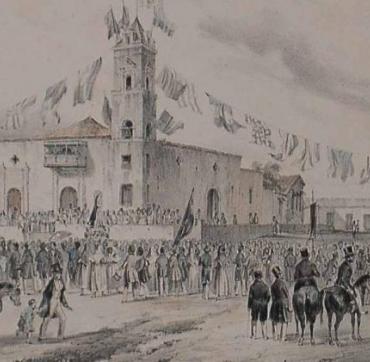Author Jhumpa Lahiri declines NYC’s Noguchi Museum award after keffiyeh ban
especiales

Pulitzer Prize-winning author Jhumpa Lahiri has declined to accept an award from New York City’s Noguchi Museum after it fired three employees for wearing keffiyeh head scarves, an emblem of Palestinian solidarity.
The museum, founded nearly 40 years ago by Japanese-American designer and sculptor Isamu Noguchi, announced in August that employees could not wear clothing or accessories that expressed “political messages, slogans or symbols” during their working hours.
“Jhumpa Lahiri has chosen to withdraw her acceptance of the 2024 Isamu Noguchi Award in response to our updated dress code policy,” the museum said in a statement on Wednesday. “We respect her perspective and understand that this policy may or may not align with everyone’s views.”
The New York Times first reported the news. Amy Hau, the director of the museum, said in a separate statement published on its website that the policy “is intended to prevent any unintentional alienation of our diverse visitorship, while allowing us to remain focused on our core mission of advancing the understanding and appreciation of Isamu Noguchi’s art and legacy.”
Across the world, protesters demanding an end to Israel’s war on Gaza have worn the black-and-white keffiyeh head scarf, a symbol of Palestinian self-determination. Anti-apartheid South African leader Nelson Mandela was also seen wearing the scarf on many occasions.
In November, three students of Palestinian descent in the US state of Vermont were shot in an attack. Two were wearing the keffiyeh.
In May, a New York City hospital fired a Palestinian-American nurse after she called Israel’s actions in Gaza a “genocide” during an acceptance speech for an award. Israel denies genocide charges brought by South Africa at the International Court of Justice (ICJ) in The Hague.
According to the NYT, Lahiri and Lee Ufan, a Korean-born minimalist painter, sculptor and poet, were to have received the Isamu Noguchi Award at the museum’s autumn benefit gala next month. Ufan is still scheduled to receive the award, the museum said.
Lahiri, who won the Pulitzer Prize in 2000 for her book, Interpreter of Maladies, was one of thousands of scholars who signed a letter in May to university presidents in the US, expressing solidarity with campus protests against Israel’s war in Gaza, calling it “unspeakable destruction.”














Add new comment